Technology & Innovations
Ultimate Guide for Smart Fitness Trackers
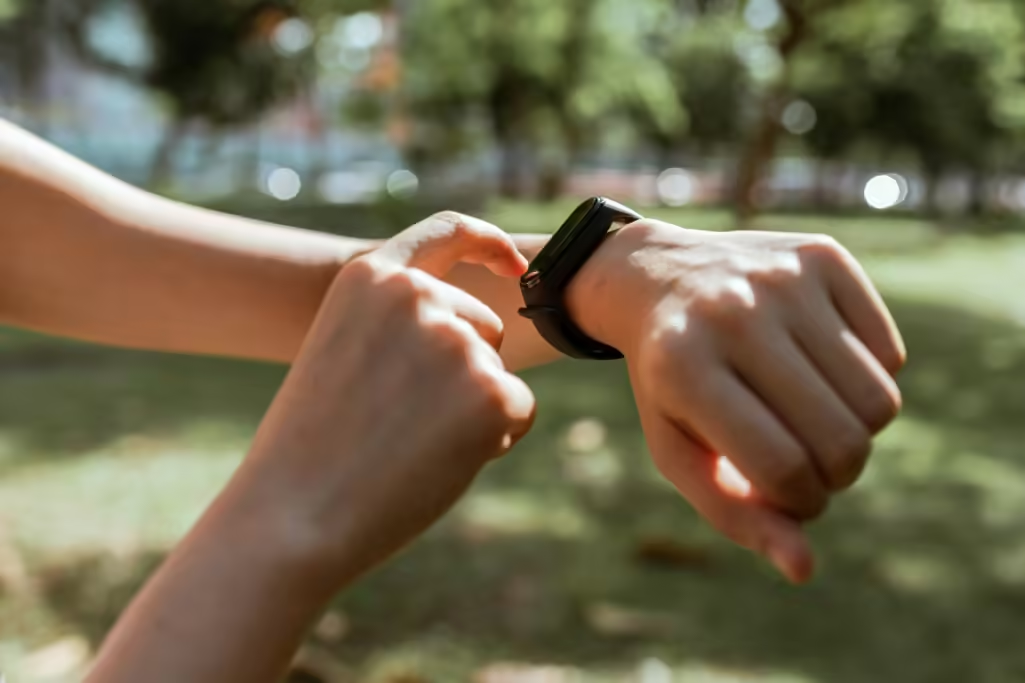
We all need a little help sometimes, right? Apps and fitness trackers have become part of our lives and are very good at keeping us motivated and on track. I don’t know about you but mine is my bestie 😄.
Today I want to talk about the awesome world of fitness trackers. Did you know that the first fitness tracker was invented in 1965 by Japanese professor Dr. Yoshiro Hatano and was named Manpo-kei which translates to “10,000 steps meter”?
Let’s dive into the world of smart fitness trackers their features, benefits, and how they can enhance your overall well-being.
Key Takeaway
- Smart trackers monitor physical activity, providing insights into health and fitness progress.
- They utilize sensors and algorithms for accurate data collection.
- Essential features include GPS, heart rate monitoring, and water resistance.
- Smart trackers help set fitness goals, monitor health metrics, and motivate through real-time feedback.
- Future trends include AI integration for personalized insights, enhanced biometric tracking, and innovative designs.
TL;DR
Smart fitness trackers monitor activity, health, and sleep to help you reach fitness goals. Choose one with the features you need, set achievable goals, and explore its full potential for a healthier lifestyle.
Table of Contents
Evolution of Fitness Tracking Technology
As mentioned above, the first fitness tracker was invented way back in 1965. Dr. Yoshiro Hatano designed a simple pedometer called the Manpo-kei to motivate people to hit 10,000 steps daily.
It wasn’t until the 80s that things got interesting with the introduction of heart rate monitors. Remember those?
Then, in the early 2000s, fitness trackers started incorporating all sorts of sensors, tracking sleep, calories, and even GPS data. They became more like mini-computers on our wrists!
Nowadays, smart trackers have advanced sensors and algorithms that provide detailed insights into your health and fitness progress. It’s crazy how far they’ve come, right?
So, How Do They Work and What Can They Do?

Imagine having a personal fitness assistant right on your wrist! That’s essentially what a smart fitness tracker is. It’s a wearable device that monitors various aspects of your physical activity, such as steps taken, calories burned, heart rate, and even sleep patterns.
Think of it as your fitness companion, keeping you motivated and accountable throughout the day.
They aren’t just about counting steps anymore. They offer a wide array of features that can truly make a difference in your daily life:
The technology behind smart fitness trackers:
Smart fitness trackers use a combination of sensors, including accelerometers and heart rate monitors, to track your movements and vital signs throughout the day.
Tracking metrics such as steps, heart rate, and sleep patterns:
From steps and distance to calories burned and active minutes, these trackers provide a comprehensive picture of your physical activity.
They can track your outdoor workouts, such as running, cycling, or hiking, with accurate GPS data—the number of steps you take, your heart rate during workouts, and even your sleep patterns.
Syncing data with companion apps for analysis:
Once the data is collected, it is synced seamlessly with companion apps on your smartphone or computer. This allows you to analyze your progress, set goals, and make informed decisions to improve your overall well-being.
Benefits of Using Smart Fitness Trackers
Smart fitness trackers are more than just trendy accessories; they can truly revolutionize your fitness journey and health.
Here are some benefits of incorporating these devices into your routine:
- Setting and Achieving Fitness Goals: You can set specific fitness goals customized to your personal needs and preferences. They can help you increase your daily step count, improve your sleep quality, or track your calorie intake, these devices can help you stay accountable and motivated.
- Monitoring Health Metrics for Better Well-being: They help you monitor various health metrics like your heart rate, sleep patterns, stress levels, and calories burned.
- Real-Time Feedback and Progress Tracking: They offer real-time feedback on your activity levels, allowing you to see your progress and make adjustments as needed.
Choosing the Right Smart Tracker for You
With so many options out there, finding the perfect fit can be a bit overwhelming. Here are a few things to consider when choosing a fitness tracker:
Factors to Consider:
- Features: Look for trackers that offer the functionalities you value most, such as heart rate monitoring, GPS tracking, sleep analysis, and water resistance.
- Battery Life: Consider how often you’d like to charge your device and opt for a tracker with a battery life that aligns with your preferences.
- Compatibility: Make sure the tracker is compatible with your smartphone’s operating system to ensure seamless connectivity.
Key Features to Look For:
- GPS tracking for accurate distance measurement: With GPS tracking capabilities, you can accurately monitor your workout routes and distances. Whether you’re running, cycling, or hiking, having precise distance data can help you set and achieve your fitness goals more effectively.
- Heart rate monitoring for optimized workouts: Tracking your heart rate during exercise is crucial for optimizing your workouts. By monitoring your heart rate, you can ensure that you’re pushing yourself enough to see results without overexerting yourself. Look for a fitness tracker that offers continuous heart rate monitoring for real-time feedback.
- Water resistance for versatile usage: A water-resistant fitness tracker allows you to track your progress even during water-based activities such as swimming or water aerobics. Plus, you can wear it in the shower without worry. This feature adds versatility to your fitness tracker, ensuring you can use it in various settings.
Top Fitness Tracker Recommendations
I’ve done the research, so you don’t have to! Here are some of the top smart fitness trackers available today:
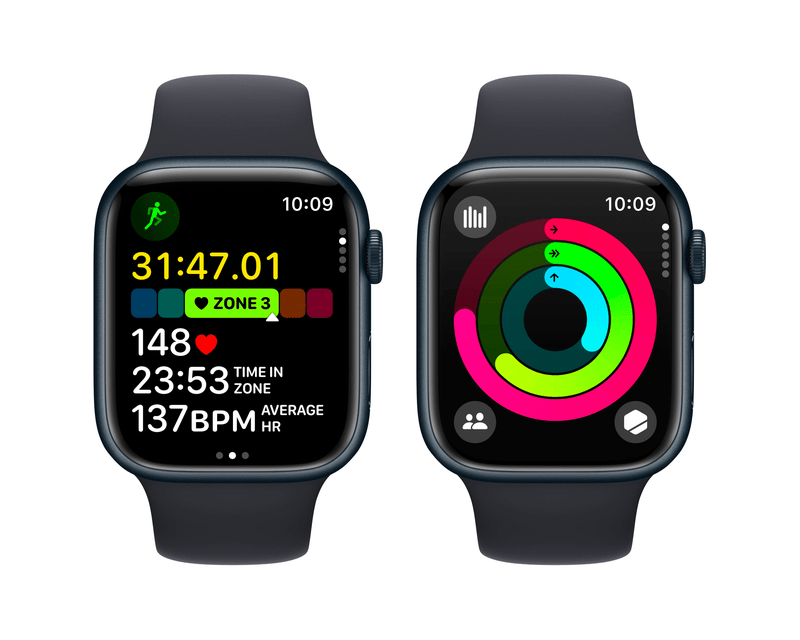
- Description: The latest Apple Watch boasts an upgraded processor, enhanced health features like ECG and blood oxygen monitoring, and a brighter always-on display.
- Price Range: $320.00 – $450.00
- Average User Rating: 4.8/5
- Best For: iPhone users who want seamless integration with their phone, a wide range of features, and a stylish design.
- Not For: Android users, those on a tight budget, or those who prioritize multi-day battery life.
- Pros: Seamless iOS integration, wide range of health and fitness features, vibrant display, and cellular options are available.
- Cons: Expensive, short battery life, limited compatibility with non-Apple devices.
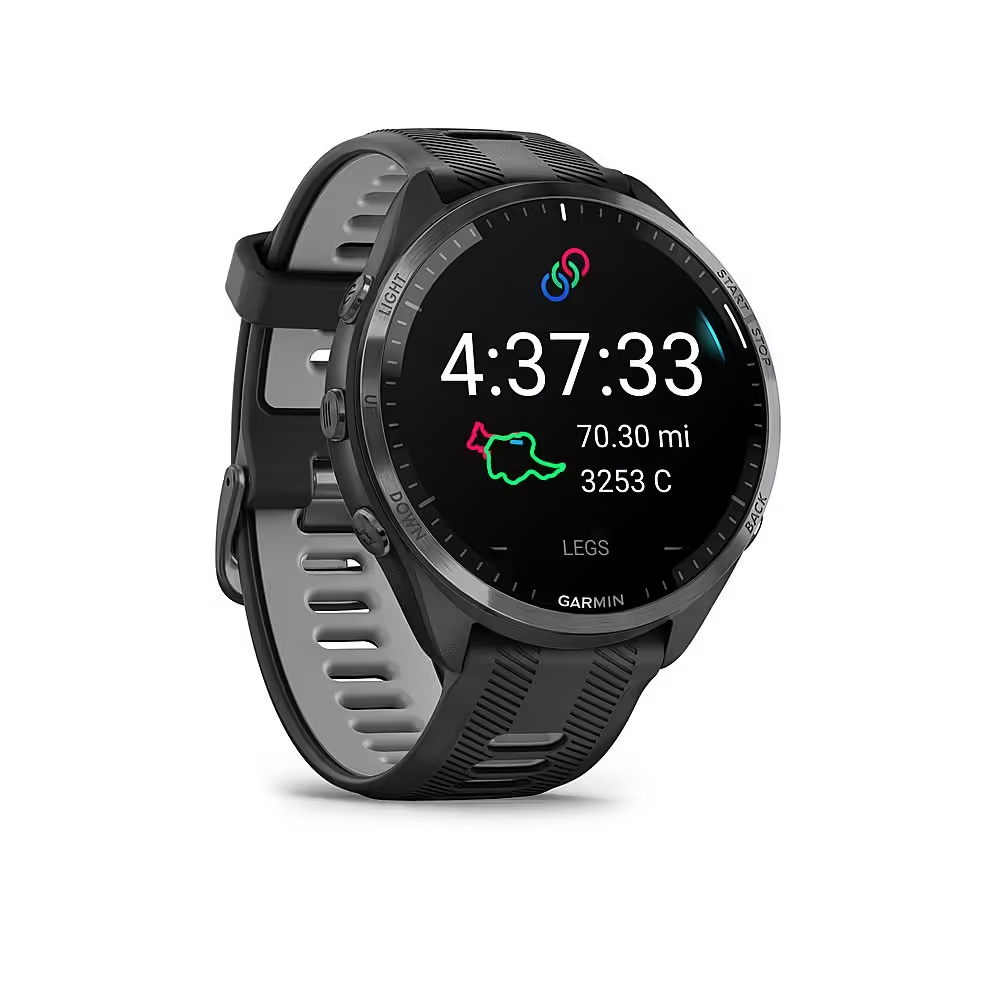
- Description: These running-focused smartwatches boast advanced training features like Morning Report, Training Readiness Score, and built-in GPS.
- Price Range: $560.00 – $599.99
- Average User Rating: 4.7/5
- Best For: Runners and triathletes who want in-depth training data, long battery life, and accurate GPS tracking.
- Not For: Casual users, those who prioritize fashion over function, or those on a tight budget.
- Pros: Advanced running features, long battery life, durable design, and accurate GPS tracking.
- Cons: Expensive, bulky design, less intuitive interface for non-runners.
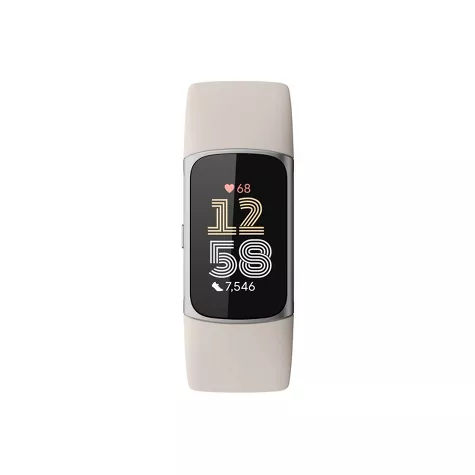
- Description: This slim fitness tracker packs a punch with a built-in GPS, EDA sensor for stress management, ECG app, and Daily Readiness Score.
- Price Range: $140.00 – $160.00
- Average User Rating: 4.3/5
- Best For: Those who want a stylish tracker with advanced health metrics, built-in GPS, and long battery life.
- Not For: Those who need extensive smartwatch features or prefer a larger display.
- Pros: Sleek design, built-in GPS, comprehensive health tracking, long battery life (up to 7 days).
- Cons: Small screen, limited smart features, not ideal for swimming.
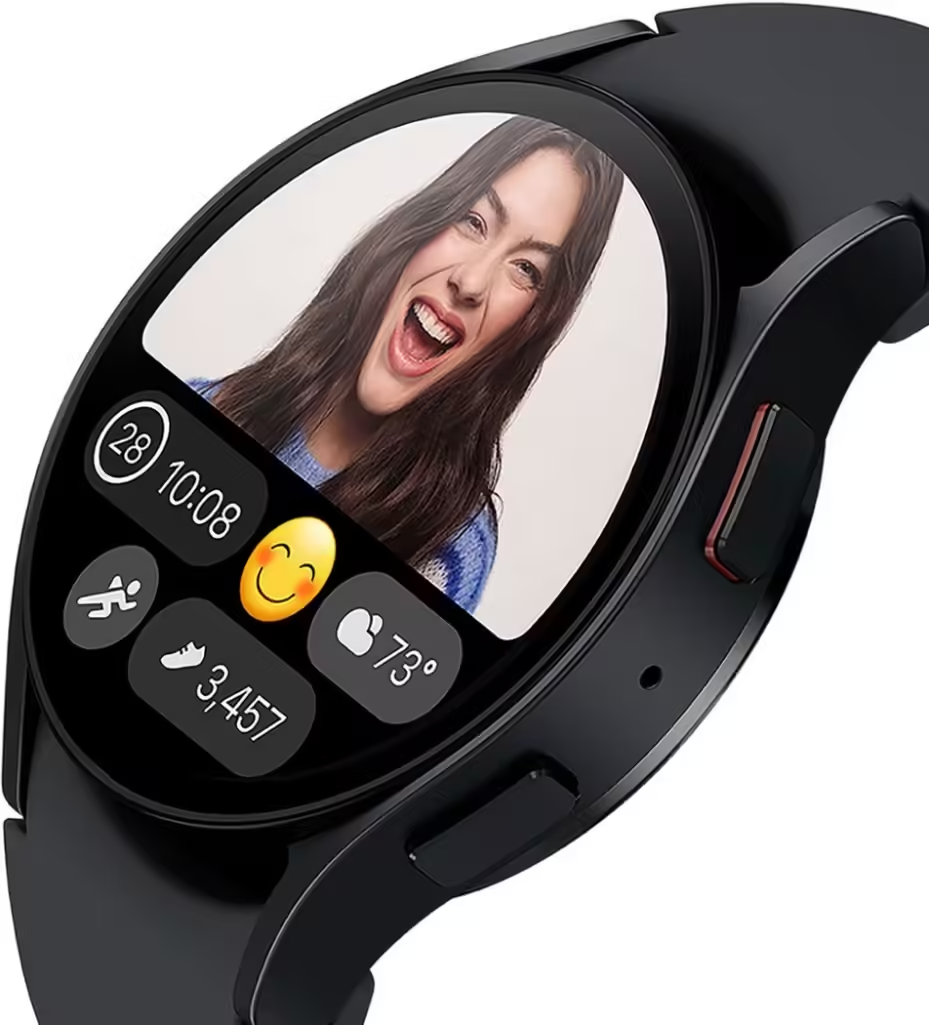
- Description: The Galaxy Watch 6 offers a sleek design, rotating bezel for navigation, advanced sleep tracking, and body composition analysis.
- Price Range: $215.99 – $220.00
- Average User Rating: 4.4/5
- Best For: Android users, those who want a stylish smartwatch with comprehensive health tracking.
- Not For: iOS users, those who prefer button navigation, or those seeking multi-day battery life.
- Pros: Sleek design, rotating bezel, comprehensive health tracking, wear OS flexibility.
- Cons: Short battery life, limited iOS compatibility, and some features require a Samsung phone.
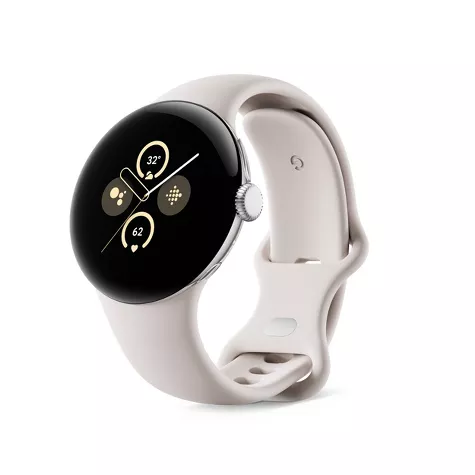
- Description: Google’s first smartwatch boasts a minimalist design, deep Fitbit integration, and a smooth Wear OS experience.
- Price Range: $270.00 – $290.00
- Average User Rating: 4.2/5
- Best For: Android users invested in the Google ecosystem, those who prioritize health tracking and notifications.
- Not For: iOS users, those who want long battery life, or those seeking extensive fitness features.
- Pros: Sleek design, seamless Google integration, solid Fitbit health tracking, Wear OS 3.
- Cons: Short battery life, limited app selection, and some features exclusive to Pixel phones.
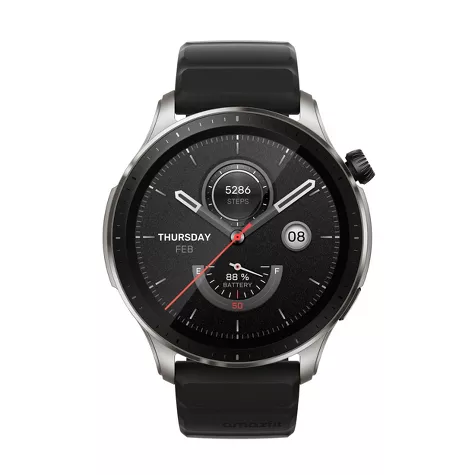
- Description: This budget-friendly smartwatch boasts a long battery life (up to 14 days), dual-band GPS, and over 150 sports modes.
- Price Range: $160.00 – $169.99
- Average User Rating: 4.7/5
- Best For: Budget-minded users, those who want a long-lasting battery, and those who track a variety of activities.
- Not For: Those who need extensive smartwatch features or advanced health tracking.
- Pros: Affordable, long battery life, dual-band GPS, a wide range of sports modes.
- Cons: Limited smartwatch features, basic health tracking, less premium design.
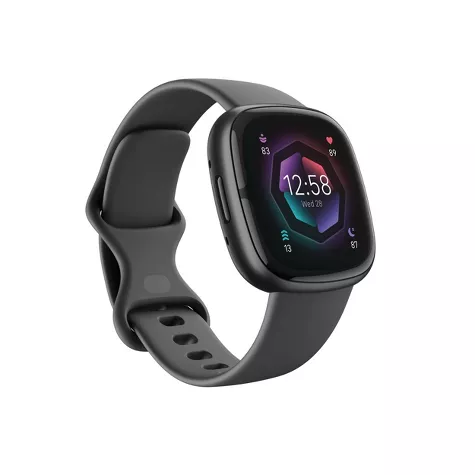
- Description: The Sense 2 focuses on stress management and overall wellness, with features like EDA Scan, ECG app, and sleep tracking.
- Price Range: $205.00 – $250.00
- Average User Rating: 4.2/5
- Best For: Those who prioritize stress management and mental well-being, and want a comprehensive health tracker.
- Not For: Those who want a built-in GPS or extensive smartwatch features.
- Pros: Comprehensive health tracking, stress management tools, ECG app, long battery life (6+ days).
- Cons: No built-in GPS, limited smartwatch features, expensive compared to other Fitbits.
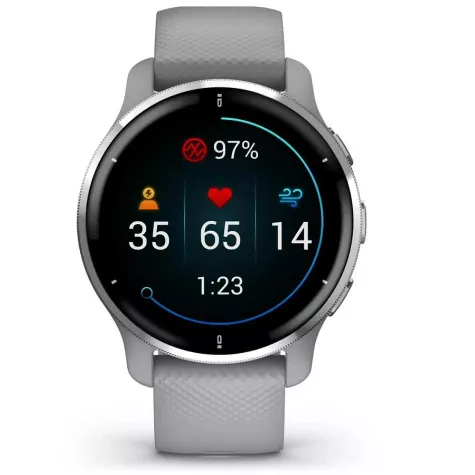
- Description: The Venu 2 Plus combines smartwatch features with advanced health tracking and built-in GPS, plus it has a microphone and speaker for calls.
- Price Range: $390.00 – $450.00
- Average User Rating: 4.6/5
- Best For: Those who want a balance of smartwatch and fitness features, and those who want to make/take calls from their wrist.
- Not For: Budget-conscious users or those who prioritize the most advanced running metrics.
- Pros: Beautiful AMOLED display, built-in GPS, comprehensive health tracking, and phone call functionality.
- Cons: Expensive, shorter battery life than some Garmin models, limited music storage.
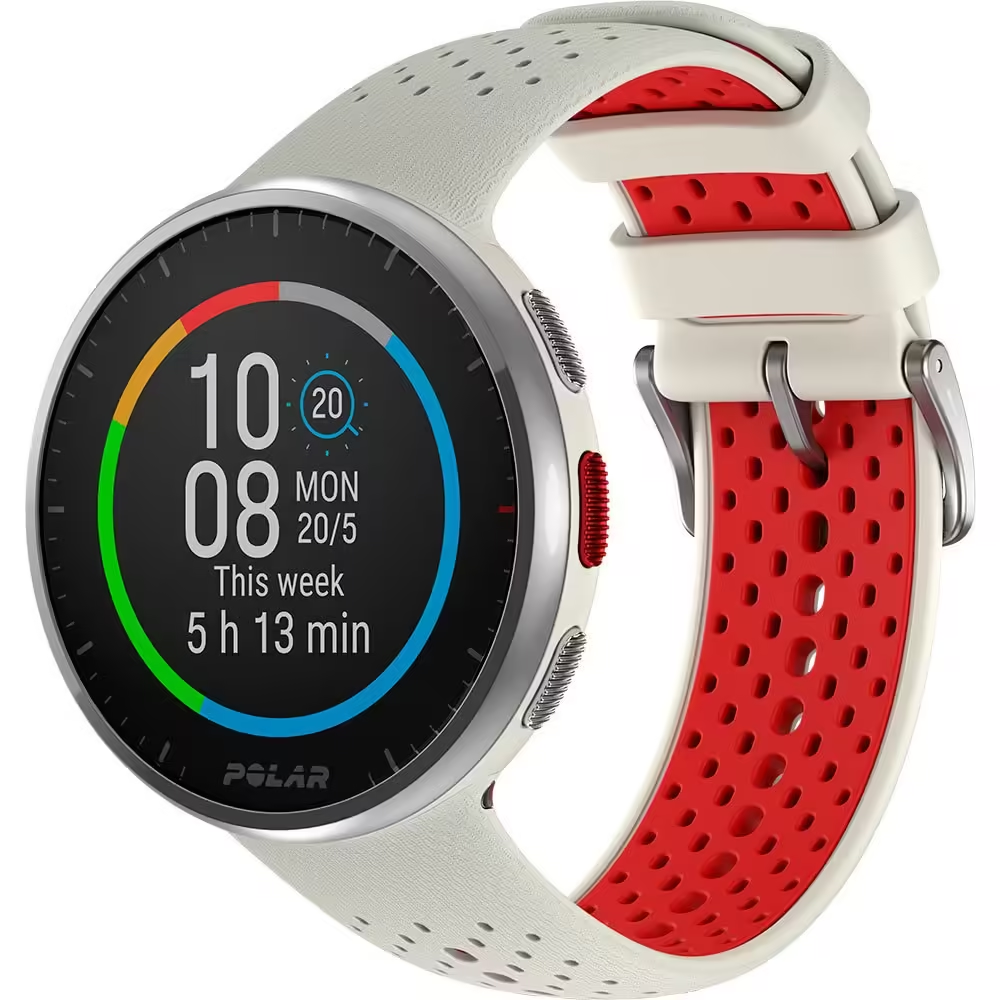
- Description: This running watch is designed for serious runners, offering advanced training tools, a barometric altimeter, and detailed performance analytics.
- Price Range: $229.95 – $239.95
- Average User Rating: 4.5/5
- Best For: Dedicated runners who prioritize training tools and performance analysis over smartwatch features.
- Not For: Casual users, those who want a more stylish design, or those who need extensive smartwatch capabilities.
- Pros: Advanced running features, accurate GPS and heart rate tracking, long battery life, lightweight design.
- Cons: Limited smartwatch features, basic design, less user-friendly interface.
10. Coros Pace 3
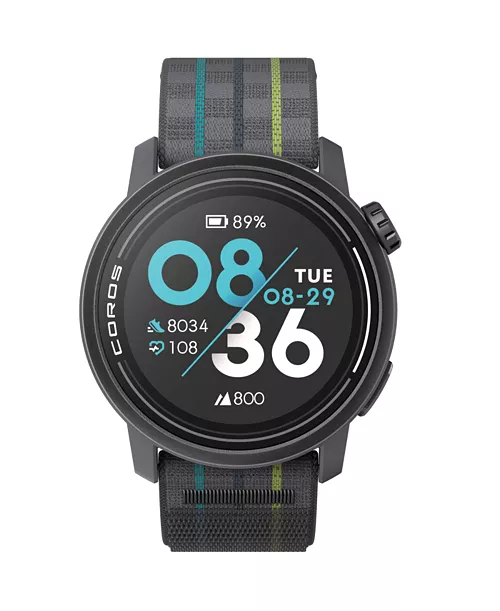
- Description: The Coros Pace 3 is a lightweight GPS watch with long battery life, basic smartwatch features, and surprisingly advanced training metrics for its price.
- Price Range: $220.00 – $240.00
- Average User Rating: 4.6/5
- Best For: Runners and triathletes seeking an affordable GPS watch with solid battery life and decent training features.
- Not For: Those who need extensive smartwatch features or advanced health tracking.
- Pros: Affordable, lightweight, long battery life, decent running features.
- Cons: Limited smartwatch features, basic design, smaller screen.
Your Perfect Match?
There’s a perfect fitness tracker out there for everyone! Seriously. Consider your budget, desired features, and how you plan to use it.
Once you get one, don’t forget to make it yours! Personalizing your tracker can enhance your overall experience.
Change the wristband for a different color and look, change the watch face, and complications, and set up custom notifications.
Tips for Maximizing Your Smart Tracker Experience
So, you’ve got yourself a smart fitness tracker – awesome choice! Now, to really make the most of it, there are a few tips and tricks you should keep in mind.
Regularly Syncing and Updating Your Tracker
First things first, make syncing and updating your smart tracker a regular habit. Doing this, will ensure that you have the latest software and firmware updates, which can enhance the performance and accuracy of your tracker.
Setting Achievable Goals for Long-Term Success
Setting goals is essential for progress, but it’s crucial to set achievable ones. Don’t push yourself too hard too soon. Start with realistic goals that you can gradually build upon. This not only keeps you motivated but also helps you avoid burnout.
Exploring Advanced Features for Enhanced Performance
Beyond just tracking your steps and heart rate, most smart trackers have advanced features that can take your fitness journey to the next level.
Take the time to explore these features. Some of them include: sleep tracking, workout reminders, and even guided breathing exercises. You might be surprised at how much more your tracker can do.
Conclusion
Smart fitness trackers are more than just gadgets – they’re tools that can empower you to take control of your health and fitness journey.
They provide valuable insights, and personalized guidance, motivate you to make positive changes, help you reach your goals, and ultimately live a healthier, happier life.
So, are you ready to give that new toy you got a try? Good luck!
FAQ
What is a smart fitness tracker?
A wearable device that tracks physical activity, health metrics, and sometimes sleep.
What features should I look for?
Consider GPS, heart rate monitoring, water resistance, and battery life based on your needs.
How do I get the most out of my tracker?
Sync regularly, set achievable goals, and explore all features.
What’s the future of smart fitness trackers?
AI-powered personalized insights, advanced biometric tracking, and stylish designs.
Affiliate Disclosure: This post may contain affiliate links. If you click on these links and make a purchase, I may earn a small commission at no additional cost to you. Thank you for your support!



